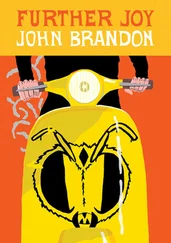The wind gusted and Dannie watched the girl pull up her hood and tug the drawstrings. She had precise fingers. She could do sign language or construct toys. The tepid winds reminded Dannie of the Santa Anna winds. Maybe they’d made it all the way across the desert. Maybe that’s how the gulls had made it here from the coasts, riding bands of destined air. Dannie felt antsy. Her scalp felt hot.
Fucking Arn. Dannie still hadn’t told her old friends she was pregnant and it was because she didn’t want to pretend she preferred being alone, like it had been her plan to use some dope for his sperm and the plan had worked splendidly. She didn’t want to have to describe Arn, or make up some fake guy in order to avoid describing Arn. She was angry at him for not coming back, angry with herself for not going after him. She’d been telling herself he was in the wind. She’d been telling herself he was hardened against her, through with her. But maybe he wasn’t. Maybe he was missing her too. Maybe he was cursing her this very moment. Arn was another thing Dannie had lost, but what if she hadn’t lost him yet? The course of her adulthood had been charted by quitting, and maybe she needed to not quit on Arn, to not quit on something she’d lost but go get it back. Maybe she needed to go find the best part of her life instead of worrying about what other thing she would lose next.
He had taken to shutting the screens down for hours at a stretch, sometimes all night, and starting them up again minutes before the owner arrived at dawn. He was tired of humoring the owner. The government had an observatory of its own, immeasurably more powerful, rows and rows of dishes a hundred miles to the west, like some huge gleaming sand crop. This job made Arn feel toyed with. He’d worked at warehouses where products were stored, factories where products were made, a bar where drinks were served, a winery that didn’t produce wine but at least might’ve served as a front for criminal enterprise. This observatory had no function whatsoever except to tickle the fancy of the owner. Aliens were not attempting to communicate with us. They weren’t. And if they were, they could. It wouldn’t matter whether or not we had wired bowls propped up on the desert floor. It wouldn’t matter if some idiot were sitting the graveyard shift.
Arn was back to sleeping in his truck bed, and it wasn’t so bad this time of year. It wasn’t freezing or hot. Arn didn’t feel safe sleeping under his topper, but people weren’t safe anywhere. Bad luck and aliens — if they wanted you, they’d find you. Arn had a membership at a YMCA in an Albuquerque suburb so he could shower. He sat out at the pool sometimes. There were tan lifeguards in bikinis, but they didn’t do much for Arn. The weight rooms were full of fathers. They were all faking being good fathers like Arn was faking being a regular guy who wanted to stay in shape. Not one person Arn saw seemed genuine. Now and then he shot hoops, only when he found the courts abandoned and could shoot in solitude. Just like at the church compound back in Oregon.
Dannie wasn’t going to come for him. She wasn’t going to have a change of heart. She’d probably found another kid to play around with. Arn knew the only reason he was still in New Mexico was he was hoping Dannie would come. Normally he would’ve quit this job by now. He would’ve been in the next state, Texas or Oklahoma. He had no energy for going back on the road, same as he felt no energy for the brown lifeguards in the red suits. New Mexico had been the first state he had not felt lonely in. Dannie had been his friend. Whatever else they may have been or not been to each other, they had become friends. There wasn’t a way for Arn to win except to know her again. Whatever cheap motives he’d had at the start, they’d died off. He’d had an ally and had lost her. He missed her skin and the way she rested one fingertip on her chin when she was about to explain something. He wanted to push his forehead against her cheek.
Arn turned a page of the huge poetry book and the next page was blank. There were no more poems. Arn closed the book and slid it to a far corner of the metal desk. Arn hadn’t known what any of the poems were about, but he’d enjoyed them. The poetry book was the only book in the observatory that wasn’t work-related, that wasn’t a radio manual or a history of space encounters. Arn had finished the whole thing, one thin, crinkly page at a time.
Arn saw now that he had been hoping all this time that someone was after him, the cops or a private detective or the enraged family of the man he’d slugged with the bat. He’d needed someone to be after him. On the run, he didn’t have to admit anything about himself. He was a deceitful orphan. That’s what he’d been afraid of being and that’s what he’d become. He’d had to keep moving, in part, to not get caught in his lies. They were lies of omission mostly, but you could get caught in those too. He had told Dannie she’d been his first, and that he’d never been to California. He’d acted unfamiliar with bars, unfamiliar with drugs. This was the part he’d played with all the women. Mystery was all he had. And false innocence. He didn’t have a self. Everything around him in the observatory was clean and hard, the buffed concrete floor and the metal desk and the molded plastic chair. Nothing had been chasing Arn, and it had chased him far enough. He went to the middle of the room and got down flat on his back on the floor. The concrete felt good against his arms and legs. Everything sounded different when you got down low and still. It reminded him of the vigils he’d been going to with Dannie. He wondered if she was still going to them. Arn was going to miss the boy, the way one missed peaceful places one had only seen in pictures. Some time in the past months Arn had learned that he could be still without hiding. You could just be where you were. He tapped his fingers on the concrete. The aliens were talking around us. They were holding lively conversations just beyond the reach of human surveillance.
Arn was trying to get fired so he’d be forced to leave the area, but he didn’t want to leave. He didn’t have the guts to simply quit. He was sabotaging himself, turning the machine off every night. The machine kept a record, of course. If the owner bothered to check, he’d know right away. But the guy probably wouldn’t fire Arn. He’d have a talk with Arn, something like that. He’d write Arn up, as if this were a real company with real policies and protocols. The owner’s main concern would be that they’d missed a transmission.
A shop that sold musical equipment had been going out of business and he had bought five cases of those space-age tiles you could nail up that were supposed to soundproof a room and improve the acoustics. The guy who owned the shop hadn’t been one bit upset that it was going under. The guy had a brand-new tattoo, still under a bandage, and he kept lifting a corner of the bandage and admiring what was hidden underneath. Mayor Cabrera didn’t believe the squares could really soundproof a room, but they might dull sound, and Mayor Cabrera could make sure never to rent out the unit right next door. There were thirty rooms and he couldn’t recall the last time they’d rented more than half of them at one time.
It took him almost three hours and a whole canvas sack of roofing nails. His forearm was numb. The hotel room looked like it belonged on a UFO. Mayor Cabrera was doing the only other thing he could think of for Cecelia. Her car, and now this. He didn’t know how to be an uncle. He had no experience with it. He was trying to help her and he was also trying to win her over. She had thanked him, about the car. He’d seen her in town and she’d only spoken to him a moment but he’d sensed a softness toward him. She was like her mother. She could talk herself into being bitter, but it wasn’t in her heart. Mayor Cabrera put surge protectors in all the sockets and lined up some music stands against the wall. He dragged the desk out and brought in a big amp. Mayor Cabrera was working on a baggie of jerky and he had a couple more tallboys in his cooler. He was no longer the mayor of Lofte. He’d informed the board and they’d drawn up paperwork and he’d signed it. There would be a special election. Until then, the lawyer was in charge. Mayor Cabrera wasn’t Mayor Cabrera anymore. He was just Cabrera. Cabrera . The next time they held a council meeting, he wouldn’t be there. He was Ricardo Cabrera, private citizen.
Читать дальше












